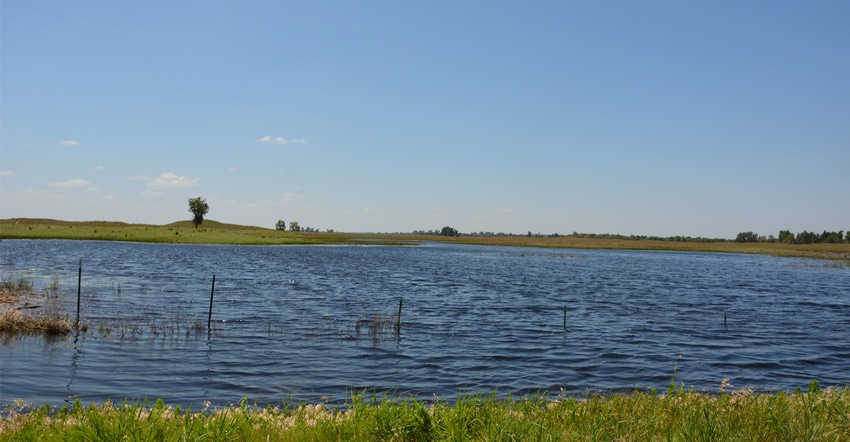April 24, 2020

The USDA Natural Resources Conservation Service announced today that it is investing $1.4 million in Kansas for a partner-driven conservation project through its Regional Conservation Partnership Program. NRCS will leverage $1.5 million partner contributions in Kansas.
The Kansas effort, the Playa Lakes Joint Venture, will connect several existing conservation efforts targeting Ogallala Aquifer conservation. The partnership will focus on engaging producers in land management and short-term land rental activities to increase irrigation efficiency, strategically retire water rights, convert producers to dryland farming and restore playa wetlands that contribute to groundwater recharge. Recharge is an important but often overlooked complement to irrigation efficiency efforts.
“We are excited that this project was selected for funding. The Ogallala Aquifer is a critical resource in this region,” says Troy Munsch, Kansas acting state conservationist. “We have a long and successful relationship with many of the partners involved in this project.”
RCPP uses a partner-driven approach to fund innovative solutions to natural resource challenges. Together with NRCS, partners implement a variety of conservation activities with private landowners and producers. These include land management practices and systems, conservation easements and watershed structures.
The mix of conservation activities carried out under each project is dependent on a project’s goals, objectives, and conservation benefits.
RCPP projects offer impactful and measurable outcomes. They support diverse agricultural and natural resource objectives. These include helping farmers and ranchers improve water quality, soil health and drought resiliency, protecting drinking water supplies, and enhancing wildlife habitat.
The Kansas project will address source water depletion, as well as aquatic and terrestrial habitats.
Nationally, NRCS is investing $206 million for 48 partner-driven conservation projects across 29 states, while leveraging nearly $300 million in partner contributions.
RCPP was first authorized in the 2014 Farm Bill. In the 2018 Farm Bill, there were changes to strengthen the program and simplify its rules. RCPP is now a standalone program with $300 million annually available for partner-driven projects.
In addition to the general RCPP projects, NRCS has already awarded more than $50 million for 18 renewals of 2014 Farm Bill projects. A separate RCPP Alternative Funding Arrangements funding announcement is currently open.
Since 2015, RCPP has combined $1 billion in NRCS investments with close to $2 billion in partner dollars to implement conservation practices nationwide. There are currently 341 active RCPP projects and close to 2,000 RCPP partners.
Source: Natural Resources Conservation Service, which is solely responsible for the information provided and is wholly owned by the source. Informa Business Media and all its subsidiaries are not responsible for any of the content contained in this information asset.
You May Also Like




